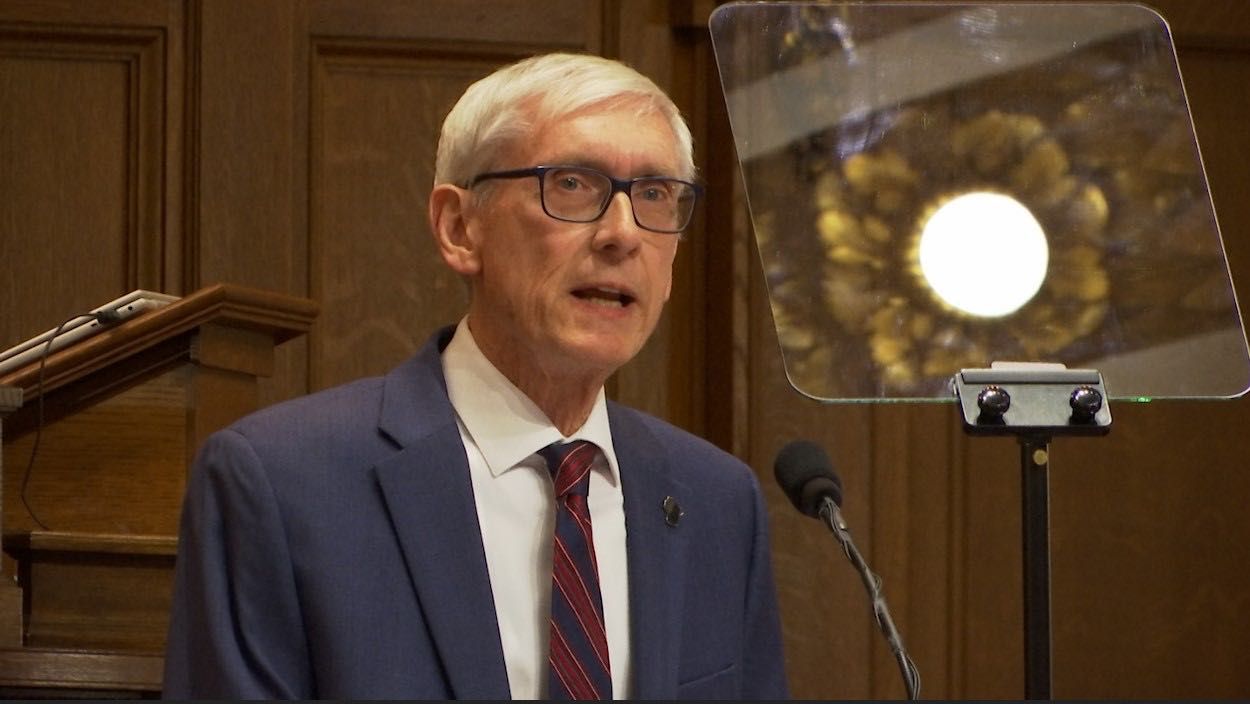MADISON, Wis. (AP) — Wisconsin Gov. Tony Evers, a Democrat, voiced skepticism Wednesday about the possibility of the Republican-controlled Legislature passing new legislative maps that Evers proposed.
Evers was asked about Republican Senate Majority Leader Devin LeMahieu floating the possibility earlier in the day of the Senate voting on the Evers maps. The Assembly would also consider passing the Evers maps, said Republican Speaker Robin Vos' spokesperson Angela Joyce.
“I’ll believe it when I see it,” Evers told reporters. But when asked if he would sign his maps if the Legislature passed them unchanged, Evers said, “Why not?”
The Wisconsin Supreme Court is weighing maps submitted by Evers and others after it ruled in December that the current Republican-drawn maps were unconstitutional.
The political stakes are huge for both sides in the presidential battleground state, where Republicans have had a firm grip on the Legislature since 2011 even as Democrats have won statewide elections, including for governor in 2018 and 2022.
Evers last week vetoed maps passed by the Legislature that were based on his proposed lines, but that moved some district boundaries so not as many Republican incumbents would face each other.
Vos said last month that he supported the Legislature passing the Evers map. Consultants hired by the Supreme Court last week determined that the maps submitted by Vos and legislative Republicans were partisan gerrymanders. That effectively left the maps submitted by Evers and Democrats as options for the court to consider.
“We would basically be giving Gov. Evers a huge win,” Vos said last month about passing the governor's maps. “Adopting his maps, stopping the lawsuit, seems like something to me we could agree on, but I’m waiting on Gov. Evers to get back to us.”
Ultimately, the Assembly did not vote on the exact plan Evers had submitted.
Vos showing support for the Evers maps, and LeMahieu raising it as a possibility that the Senate may vote on them, shows that Republicans are worried about other alternatives the liberal-controlled Supreme Court could order. All the plans the court is reviewing are projected to greatly reduce Republican majorities.
The court's ordering of new maps is expected no later than March 15, the deadline given by the state elections commission to have new lines in place. But the Legislature and Evers could enact new maps before the court rules, if they can agree.
LeMahieu told reporters that passing Evers' maps was one option Republicans were going to consider when discussing next steps privately Wednesday. The Senate, controlled 22-10 by Republicans, could vote on them as soon as next week.
The moves in Wisconsin come as litigation continues in more than a dozen states over U.S. House and state legislative districts that were enacted after the 2020 census. There is also a separate lawsuit in Wisconsin challenging congressional district lines.



